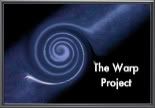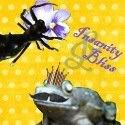TOS: Episode 37: I, Mudd
A new officer is aboard the Enterprise. The new man bothers Bones, who isn’t afraid to express his intuitions to Spock. Something is odd, however, as we quickly find the new officer enforcing an unplanned course change upon the Enterprise. It appears that the insufficiently argued views of McCoy that Spock so determinedly revolted against were right. Now, the Enterprise has been taken over, and it seems the figure is too powerful for anyone (so far) to overcome.
Episode Summary
Our new, mysterious crewmember has completely taken over control of the galaxy class starship, sabotaging each of the alternate control posts throughout the ship. He then reports to the bridge, informing Captain Kirk that they mean the crew no harm, but need the use of the Enterprise. It is revealed that the new crewmember is not human after all, but instead is a highly sophisticated android that speaks of himself in the plural, and is programmed to fulfill some mission, which includes taking Kirk, Spock, McCoy, Chekov, and Uhura to the surface of the planet on which his programmers originate. Unable to do anything to change the situation, Kirk agrees to travel to the planet below. There more androids (all basically identical women), as well as the space pirate we met in season 1—Harry Mudd—greet the away team. It turns out Mr. Mudd, according to his own account, is in complete control of the entire planet, thanks to the help of over 500 of his powerful androids.
We hear from Mudd that the crew had better begin to enjoy themselves, and that they should expect to spend the rest of their lives on the planet. Finally, Mudd confesses that he’d been arrested after being left behind on the mining planet we placed him on in season 1, and then, very slowly works his way to explaining why the Enterprise crew is there. It turns out the androids serve and study Mudd, and demanded Mudd bring more humans for the androids study and serve
Episode 37 seems written as an odd sort of study of a character that wasn’t all that interesting to begin with. We discover more of Mudd’s personal narrative in this episode--mainly that of his former relationship to a wife that antagonized him incessently. But, perhaps more interestingly, we get to consider the reality of a world lived on and dominated by androids that have lost their makers and so also their purpose. Season 1 offered us a view of androids on a far away planet, but those androids had rather limited functionality. Those androids also depended on the instruction and programming given to them by their ruler; though in that case, we discover in the end that their ruler is an android too. It seemed in that episode, then, that some androids at least could rule themselves. Here we see a planet that, at least in the beginning, shows all androids that appear to be entirely devoted to one human ruler—Mudd.
As we get to know the android race better, we discover they are so sophisticated they are able to fulfill any wish the crew would ask for, whether it be Chekov’s need for amorous attention, Scotty’s desire to further laser engineering, McCoy’s thirst for research, or Uhura’s suddenly revealed desire for immortality. Step by step we see the crew become vulnerable to the limitless fulfillment of their desires. Kirk demands of them to contain their enthusiasm—they are going to get off that planet. They are going to escape.
Okay, can we just acknowledge that the Mudd character isn’t actually interesting, nor is he much of plot driver? We see him again in the third season when Mudd famously introduces us to the Tribbles. The upside of that episode is, of course, our opportunity to engage with the Klingons. Honestly though, I’ll have to put some thought into what would have the Star Trek writers return again and again to this character. We meet Mr. Mudd in the first season when he arrives aboard the Enterprise with three beautiful women that bewilder the entire crew with their alluring powers. There it turns out Mudd has enchanted them with a sort of super herb that heightens their feminine advantages. Mudd, then, we realize is a trickster, as well as a covert businessman trying to trick those vulnerable to his wares into purchase. Roddenberry developed the character originally. Though, again, it seems that in each episode that Mudd appears it is less for what he as himself has to offer and more for what he happens to bring along with him. In other words, the same issues could be explored in each of the episodes in which he appears without the introduction of Mr. Mudd himself. In the current episode, however, we hear Kirk pronounce Mudd as the paradigmatic example of a failure of a human being. Perhaps, then, this is the point for Roddenberry--to highlight the contrast between his exemplary star traveling crew, and this trickster. We can also recall the time period in which The Original Series was developed, as well as the way it was originally marketed. Fantasy dominated the television airwaves through not only with Star Trek, but also through shows like I Dream of Jeannie, and most predominately, the Cowboy-Western drama. Common to any Cowboy episode is a kind of patsy that isn't strong enough to fight off enemies through force, isn't brave enough to stare down those that would do him in, isn't hard working or clever enough to become rich by conventional means, but somehow gets by and gets an almost-break again and again through his irreverent, illegal, and usurious behavior. Mudd is Roddenberry's necessary patsy-cowboy--the one that will never be a person to admire, but that reminds us there are many paths to choose for survival. Mudd, then, serves as a kind of moral question for his viewers--how will you choose to catch a break in your life?
The androids here are a nice topic for exploration, though it is, of course, problematic that all androids are exact replicas of apparently beautiful women. We get further adoration of mechanized technologies when Kirk recites the line, “No! She [the Enterprise] is a beautiful lady, and we want her!” as he demands of the androids to return his ship. Returning to consideration of the androids in this episode, they, supposedly, are run entirely by logic, and systematic programming. They are meant to be without wants and desires, but the androids also obsessively pursue their human subjects of study, and they seem to also need to be fulfilled by studying and caring, both, for those subjects. In these ways it would seem they do have some form of needs and desires, though perhaps the crucial point is they do not control them in the way humans would seem to at least have the potential to control theirs.
I’ve also decided, as a side note, that Uhura is an early model for what becomes X-Men’s character Storm. Uhura originates in the southern reaches of Africa, speaking Swahili occasionally through the series. Storm holds Wakandan citizenship, that is in the fictional African country treated as a mystical, other-worldly type area of the planet by the X-Men series. Uhura's fictional origination is placed in a different part of Africa, but the point of placing her there is the same--she comes from a mystical, other-worldly area of the world and now, just like Storm, has become part of the Western fantastic elite. For Storm, such power is exhibited as a goddess and superhero. For Uhura, it is exhibited by being an integral part of the front-line in space travel, exhibiting super-human abilities for communication and language acquisition. In Episode 37, the immortality that Uhura desires, and the way in which it is offered to her, has mild resemblances to Storm’s ascension to god-hood. Of course, thanks to Kirk’s heavy hand, Uhura resists taking the same offering herself. She does not truly need it, afterall, with her already holding the ability for space travel.
As the episode continues, the androids demand that humans are too imperfect to manage themselves. As a result, they intend to take over all of humanity, via the transportation ability the Enterprise offers them. They will reproduce themselves and control humans, while fulfilling what they logically determine to be the reasonable desires of humans too. Now, Mudd is stuck on the planet with the Enterprise crew too. The androids refuse to allow him to leave with the ship, as originally expected. As Spock and Kirk reason through the possible ways to deal with the situation, they realize all the androids are actually run through the initial android that appeared aboard the Enterprise—the one that McCoy was skeptical of. With this in mind, the crew decides the best way to deal with the situation is to overwhelm their computer circuits with absurdity. Ah, here is the gem of this episode—the officers of the Enterprise all devolve into over done, and nonsensical behavior contradicting themselves intentionally, play fighting with each other, imitating ball room style dancing, and even engaging in a game of baseball with imaginary explosives.
Episode Tidbits
“I, Mudd” offers us the opportunity to explore the psyche of Spock through comparison to those that are more extreme than he. On the one side, we regularly see Spock in contrast to his human companions—those that he is unlike because he is more logical, or reasonable than he is. On the other side, now we have the opportunity to discover Spock’s contrast to beings more logical than he. What we discover is that Spock’s logic is balanced with intuition. In this way, when the human officers begin to act in their absurdity and explicit irrationality, it turns out the androids depend on Spock to interpret and make sense of the situation. Spock resembles the very skills the androids hold—logic and reason—but also has an additional ability the androids do not —intuition and spontaneous interpretation of situations. In the end, without this additional interpretive ability, the androids are outdone.
The Entire Star Trek Universe at High Speed
Subscribe to:
Post Comments (Atom)







No comments:
Post a Comment